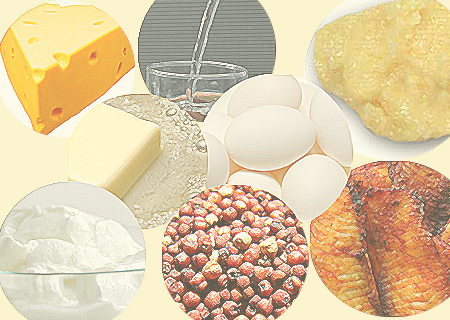Calcium is one of the major minerals of the body. It constitutes around 1.5-2% of the total body weight of an adult human being. On an average, an adult human body contains around 1200 grams of calcium of which 98% is stored in our bones and 10mg/dl is in the blood. We’ve tried to explain through this feature the importance of calcium in our diet.
Calcium is extremely essential not just for bones and teeth as is commonly thought, but is a very important component of muscles, blood and nervous system too. It is important for coagulation of blood and contraction of the muscles as well as for the formation of bones and teeth and production of milk for the new born infant. An essential component of breast milk, it is necessary for metabolism of enzymes and hormones in the body. What’s more, it is vital for normal cardiac activity and helps keep membranes of cells intact and in the relay of the electrical and chemical messages that arrive to a cell’s surface to the complex biochemical machinery within the cells. It is essential for conversion of light to electrical impulses in the retina and thus plays a vital role in maintenance of normal vision too.
A normal adult requires around 400-500 milligrams calcium each day while pregnant and lactating women require about 1000 milligrams daily. The requirements are also higher in growing children and infants.
Animal products are rich sources of calcium in general. Milk and milk products like butter, cheese, ghee, and yogurt are rich in calcium. Eggs and fish also provide umpteen amount of calcium. Amongst vegetarian sources, the millet “ragi†is the richest source of calcium. Fruits like custard apple also provide good amount of calcium. By far drinking water provides maximum calcium in our daily diet. Other cereals and millets contribute poorly due to their phytic acid content which prevents the calcium from being absorbed. Green leafy vegetables contain plenty of calcium but due to their oxalic acid content make the calcium unavailable for human use.
The human body absorbs around 20-30% of the ingested calcium. Adequate vitamin D increases calcium absorption while phytic and oxalic acid form insoluble compounds with calcium rendering it useless for humans.
While excess of calcium never really harmed anybody other than causing increased chances of having kidney stones, calcium deficiency can lead to a number of conditions. Hence understanding the importance of calcium is essential.
1. Tetany – A condition due to low circulating levels of calcium in the blood. In tetany, the fingers and toes bend downwards suddenly and painfully due to a severe spasm of the muscles. It needs immediate medical intervention.
2. Osteoporosis – Porous or weak bones may develop in the long run due to inadequate calcium assimilation. Such bones are brittle and prone to fractures on minimal trauma.
3. Osteomalacia – This may result due to inadequate amounts of calcium causing the bones to be soft. Such bones bow under the weight of the body causing bone pains, easy and chronic fatigue, muscle cramps, easy fractures, etc. Osteomalacia in children is called as Rickets. Rickets also has other symptoms like Rickety Rosary on the chest, Harrison’s sulcus on the chest, pelvic flattening, Bow-legs, Pigeons’ chest, frontal bone bossing.
4. Fractures – Calcium deficient bones are prone to fractures. Sometimes the vertebral bones get a compression fracture due to a minor jerk and leads to severe back pain, restriction of movement and reduction in height.
5. Kyphosis – Weak bones might bend due to poor posture causing protrusion of the vertebral column at one point, commonly the dorsal region.
6. Cardiac arrhythmias – This is a rare complication but possible in severe deficiency.
Treatment of calcium deficiency in chronic cases is by supplementing the diet with calcium. Tablets and pills containing the Recommended Daily Allowance (RDA) are available freely in the market and advisable to almost every post-menopausal woman. Post-menopause the hormones that are released by the ovaries stop. These hormones are important in women for calcium absorption and thus calcium supplementation becomes essential. Consuming a diet rich in calcium-rich foods is the best option. Also one must include an exercise program in the daily routine to help strengthen muscles and bones. A very rigorous program is not essential. One essential thing that must not be overlooked is to check any other medication that one might be consuming. Some conventional medicines like diuretics tend to deplete the calcium from the body. Such medicines should be replaced, reduced or stopped depending on their importance.
Another important step that one can take to ensure adequate calcium absorption is to ensure good vitamin d levels. Vitamin D that is stored in the skin gets activated on exposure to UV rays of the early morning sun. This activated Vitamin D is extremely essential for good calcium absorption from the food in the intestines and re-absorption from waste in the kidneys. Thus simple 20 minute exposure to the sun can cure one of their bone pains and lethargy! As we see the importance of calcium is not limited to just what we eat, but is much more.
– Dr. Rachita Narsaria

